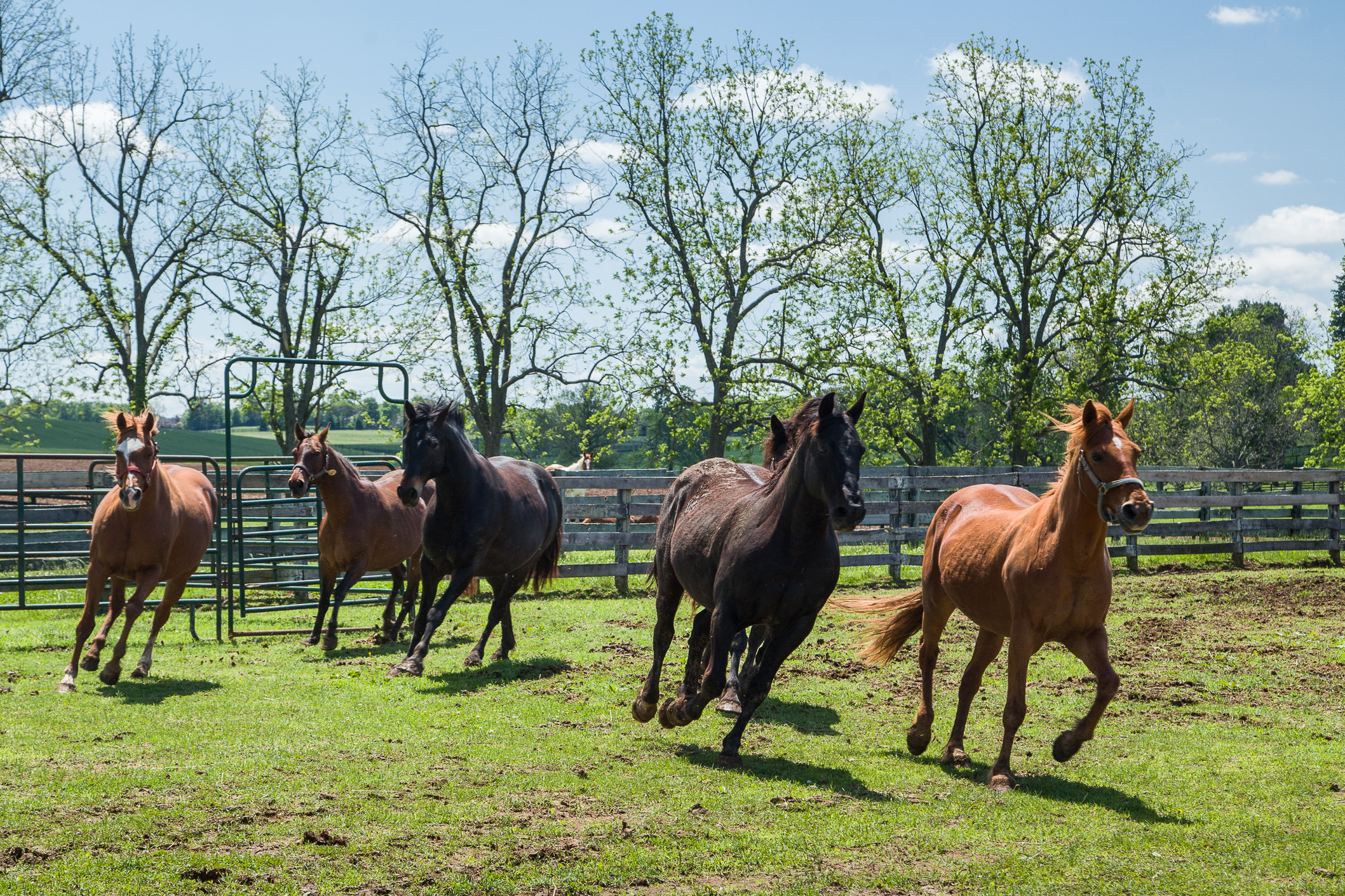Think about horse hay needs now
Think about horse hay needs now


In the midst of a bountiful first cutting of hay, a University of Kentucky equine specialist reminds horse owners to start thinking about how much hay they need in the future.
“The photos I’m seeing look great,” said Bob Coleman, extension equine specialist with the UK College of Agriculture, Food and Environment. “There is some good-looking hay out there, but growing conditions and weather could change things up here at home or across the country and that will move hay either across the state, to a neighboring state or wherever the need may be at the time.”
Feeding horses is expensive. Coleman encourages producers to plan for how much hay they may need this winter, while growing conditions are ideal.
“Do the math and figure out how much your horses need,” Coleman said. “When planning your hay budget, consider your horse’s weight and plan for feeding 2% of their weight per day in hay.”
For example, a 1,200-pound horse will need 24 pounds of hay per day.
“How many days do you think you will need to feed at that rate?” Coleman asked. “Will you have pasture to use, thereby reducing your hay needs, or will you have horses in the barn that get hay each day?”
For example, if owners will need to feed for 180 days, then they will need to multiply 24 pounds by 180 to get the total amount of hay they need. The more horses they are feeding, the more hay they will need.
Another thing to consider is how owners plan to feed hay. Using a feeder may help reduce wasted feed.
“Feeders can reduce waste, but they won’t eliminate it,” Coleman said. “Make sure you figure in an amount for wasted, perhaps about 10%. Not using a feeder can cause a hay waste of up to 50%.”
Storage is an important consideration. Store hay in a covered, well-drained area to reduce waste.
“Thinking back to our example of a 1,200-pound horse and figuring in all potential waste considerations, that horse will need approximately 2.6 tons of hay or 104 50-pound bales of hay in a year,” he said.
Many owners have more than one horse, with different weights. For those scenarios, Coleman suggests either doing individual calculations for each horse or using an average body weight for all horses.
Equine managers should have a nutrient analysis done on their hay. That will help horse owners know whether or not they need to supplement the forage to meet their horses’ needs. The Kentucky Department of Agriculture offers a Forage Testing Program. Producers can find more information about sample submission, which has recently changed, and program costs at https://www.kyagr.com/marketing/forage-program.html.
UK Cooperative Extension Service has an office in each Kentucky county, with agents who can help with equine-related questions and much more. To find a local office, visit the directory online at http://extension.ca.uky.edu/county.
Ag Equine Programs

